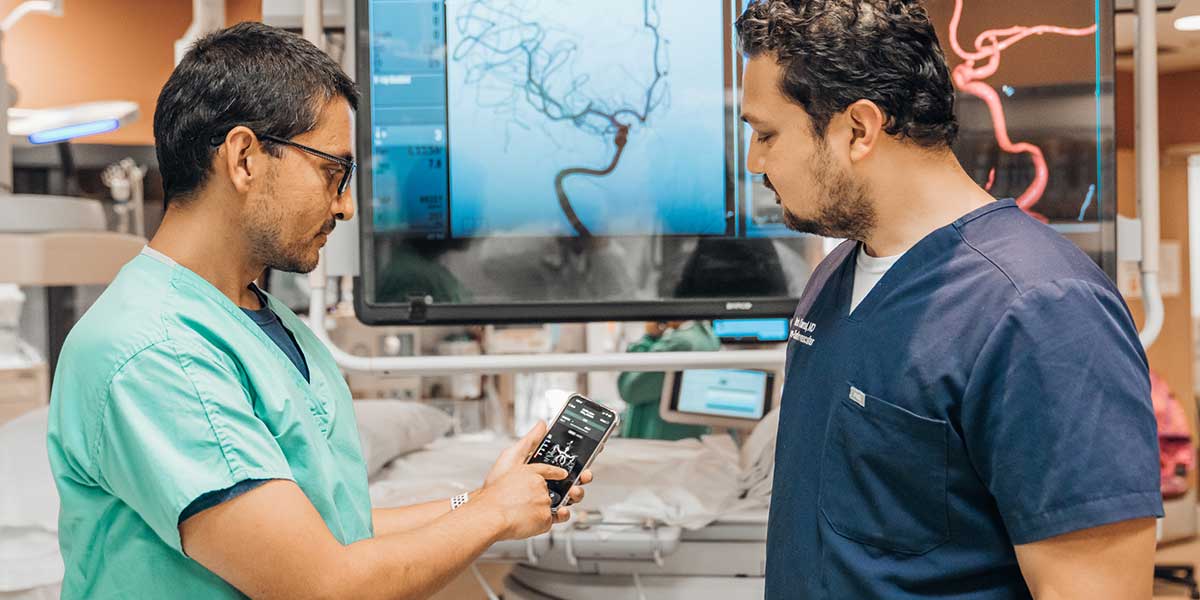
Brijesh P. Mehta, MD, Medical Director, Comprehensive Stroke Program and Neurointerventianal Surgery, and Haris Kamal, MD, neurointerventional surgeon, use RapidAI imaging to identify blocked arteries.
Artificial Intelligence Accelerates Stroke Treatment
Every second counts with stroke. Nearly 2 million neurons are at risk of permanent injury with every minute that passes.
That’s why the experts at Memorial’s Comprehensive Stroke Program at Memorial Neuroscience Institute use the RapidAI® imaging platform to identify blocked arteries quickly and begin treatment as quickly as possible.
Since Memorial began using the technology in 2017, RapidAI® has identified more than 8,400 strokes and helped the neurointerventional surgery team reduce door-to-treatment times — saving lives and critical brain functions.
The technology alerts doctors on their smartphones and watches as soon as scans are ready and makes it easier for them to view results and mobilize cath lab teams.
“Artificial intelligence streamlines our workflow, cuts down on time and allows us to make decisions quickly and effectively at the point of care to benefit our patients,” says Brijesh P. Mehta, MD, medical director of the Comprehensive Stroke Program and Neurointerventional Surgery.
The health system began using the imaging system at Memorial Regional Hospital and has now expanded the program to Memorial Hospital West, Memorial Hospital Miramar and Memorial Hospital Pembroke.
Both Memorial Regional Hospital and Memorial Hospital West are certified Comprehensive Stroke Centers.
Advancements in artificial intelligence have helped Memorial Neuroscience Institute efficiently triage stroke patients, and provide them with the most effective treatment and appropriate care in the shortest possible time.”
Christopher DeMassi, MD
Chief, Neuroscience Institute; Chief, Adult Neurosurgery; and Medical Director, Spine Center
Patient Story: Rebuilding Strength
Intensive therapy at Memorial Rehabilitation Institute helped Cristina get moving again after a neurological disorder knocked her off her feet.
Cristina had just returned from a bike ride when her legs went numb. Her husband took her to Memorial Hospital Miramar, where the Memorial Neuroscience Institute team found that Cristina had transverse myelitis, or inflammation of the spinal cord.
She was admitted to Memorial Rehabilitation Institute at Memorial Regional Hospital South for intense physical and occupational therapy to recover as much strength, mobility and function as possible. Now, she and her husband are walking miles every day.
“When you have a team like the one Memorial has here, patients recover easily,” she says.

